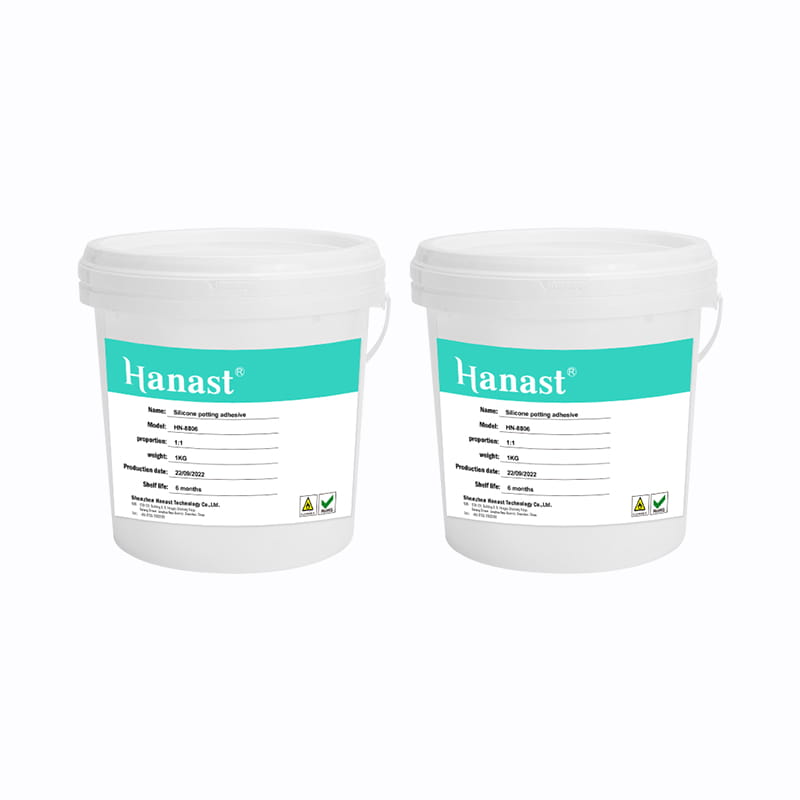What application properties will be affected by the curing shrinkage rate of organic silicon potting compound
 Sep 08,2023
Sep 08,2023

 Hanast
Hanast
The curing shrinkage of organic silicon potting compound refers to the phenomenon sealant where the volume of the sealant during the curing process is inconsistent with the volume after curing, and the volume after curing decreases. The larger the difference in volume before and after curing, the greater the curing shrinkage rate of the sealant. Therefore, what application performance will be affected by the curing shrinkage rate of organic silicon potting compound ? Please listen to the following explanation from the editor.
Firstly, it is about appearance. As people's needs become higher and higher, they pay more attention to the pursuit of product aesthetics. After the application of silicone sealant products, shrinkage occurs during the curing process, resulting in wrinkles, dents, and unevenness in the appearance. This greatly discounts the appearance of the product and the user's feeling, and can be directly traced back to whether there are differences in application performance.
The volume shrinkage of rtv potting compound during the curing process does indeed affect its application performance. For example, weather resistance mainly refers to the resistance to climate and environmental changes in the application scenario, and the impact on the colloid. During the curing process of rtv potting, shrinkage occurs, and the adhesion around the sealing or filling material will first decrease, causing the internal stress generated by the adhesive to not be released. In addition, the erosion of the environment and climate can damage the internal stress of the colloid, leading to the cracking of the colloid or the detachment of the product to produce cracks, It loses its protective effect.
In addition to weather resistance, electrical performance can also be affected due to the presence of internal stress in the surrounding colloid in the area where shrinkage occurs. The generation of internal stress is mainly due to the tensile force generated by the adhesive material when the colloid contracts, causing the colloid to tighten. The flexibility of the colloid in this area is relatively poor, making it easy to be broken down under high pressure.
organic silicon potting compound is a widely used adhesive in the electronics industry. If cracks, peeling, and lack of resistance to voltage impact occur during use, it can be considered whether it is caused by differences in shrinkage. Transparent colloids are easy to distinguish, and those with appearance colors need to be tested and verified.




 Home
Home Will electronic potting compound corrode electronic components
Will electronic potting compound corrode electronic components  You May Also Like
You May Also Like







 Tel
Tel
 Email
Email
 Address
Address












